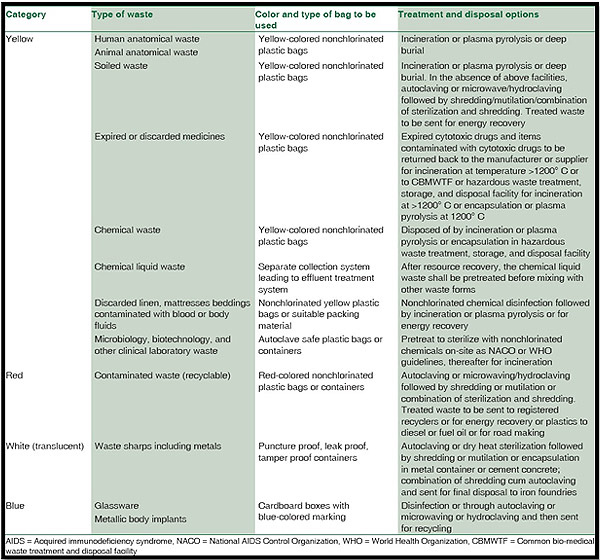The Reclaim Waste Diaries
The Reclaim Waste Diaries
Blog Article
What Does Reclaim Waste Do?
Table of ContentsThe Ultimate Guide To Reclaim WasteSee This Report on Reclaim WasteLittle Known Facts About Reclaim Waste.The Reclaim Waste StatementsThe Ultimate Guide To Reclaim Waste
Explore the kinds, occurrences, and kinds of fluid waste. Domestic sewer waste refers to the waste and products from a domestic septic tank. This sort of waste is produced by humans in houses, colleges, and various other structures. This only includes septic systems that have a drain field. The correct monitoring and disposal of residential sewer waste call for liquid waste to be moved to a sewer therapy plant where the correct approaches and tools are applied to detoxify and take care of waste.
Commercial waste often consists of possible dangers, such as combustible materials or a mixture of liquid and strong waste products, and requires an advanced and comprehensive disposal process. The disposal of business waste generally involves the filtration of waste prior to transport to make certain risk-free and correct disposal. Industrial waste is developed from byproducts and runoff of industrial procedures and production.
This sort of waste can not use the very same sewage administration transport or processes as septic or industrial liquids. The hazardous waste monitoring procedure calls for the evaluation and testing of liquid waste before it goes through the disposal procedure (liquid waste disposal). Drainage waste is the fluid waste that comes from drainage and excess stormwater in highly populated locations or cities
Runoff waste can create contamination and flooding if not managed correctly. Making certain appropriate waste management can stop catastrophes and lower ecological harm.
Indicators on Reclaim Waste You Need To Know
Get in touch with PROS Solutions today to find out about our waste management and disposal solutions and the proper ways to look after the fluid waste you generate.
(https://reclaimwaste1.mystrikingly.com/blog/efficient-liquid-waste-disposal-in-melbourne-why-reclaim-waste-is-your-go-to)This supposed 'wastewater' is not only an important source yet, after treatment, will be launched to our land, rivers or the sea. Made use of water from bathrooms, showers, baths, cooking area sinks, washings and industrial processes is known as wastewater.

water utilized to cool machinery or tidy plant and devices). Stormwater, a type of wastewater, is drainage that moves from farming and city areas such as roofing systems, parks, yards, roadways, paths and seamless gutters into stormwater drains, after rain. Stormwater flows neglected directly to regional creeks or rivers, at some point getting to the sea.
Reclaim Waste Fundamentals Explained
In Queensland, the majority of wastewater is treated at sewer treatment plants. Wastewater is carried from domestic or industrial websites via a system of sewers and pump terminals, called sewerage reticulation, to a sewer therapy plant. Local governments develop, keep and operate most sewage treatment plants. Operators are licensed under the Environmental Defense Act 1994 to discharge treated wastewater at an acceptable environmental standard into rivers.
The try this out Department of Natural Resources advises regional federal governments regarding handling, operating and keeping sewage systems and treatment plants. In unsewered areas, neighborhood federal governments may call for owners to mount private or house sewage therapy systems to deal with residential wastewater from commodes, cooking areas, shower rooms and laundries. The Department of Natural Resources authorizes using house systems when they are shown to be efficient.
A lot of stormwater gets no therapy. In some new subdivisions, treatment of some stormwater to eliminate clutter, sand and gravel has actually begun making use of gross pollutant traps. Wastewater treatment occurs in 4 phases: Eliminates solid matter. Bigger solids, such as plastics and other items incorrectly discharged to sewers, are gotten rid of when wastewater is travelled through screens.
Wastewater after that flows right into large storage tanks where solids clear up and are gotten rid of as sludge. Oil and scum are skimmed from the surface area. Uses small living microorganisms referred to as micro-organisms to damage down and get rid of remaining liquified wastes and great bits. Micro-organisms and wastes are included in the sludge. Removes nitrogen and phosphorus nutrients that could cause algal blossoms in our waterways and threaten water life.
Some Of Reclaim Waste
Nutrient removal is not offered at all sewer treatment plants since it requires pricey specialized equipment. It is ending up being a lot more typical in Queensland. Clear liquid effluent created after treatment may still have disease-causing micro-organisms. If this effluent is released right into waterways such as rivers or the sea, the micro-organisms will eventually pass away out.

This typically implies wastewater needs to be treated or contaminants eliminated prior to it can be discharged to waterways. The majority of wastewater streams right into the sewerage system. Under the Act, city governments administer approvals and permits for ecologically appropriate tasks (Ages) including wastewater launches that could have a regional influence. The department provides authorizations and permits to Periods involving wastewater launches that could have a local or statewide influence.
The 20-Second Trick For Reclaim Waste
Monitoring offers valid details regarding water top quality and can validate that licence problems are being satisfied. The info obtained via surveillance offers the basis for making water quality choices.
Report this page